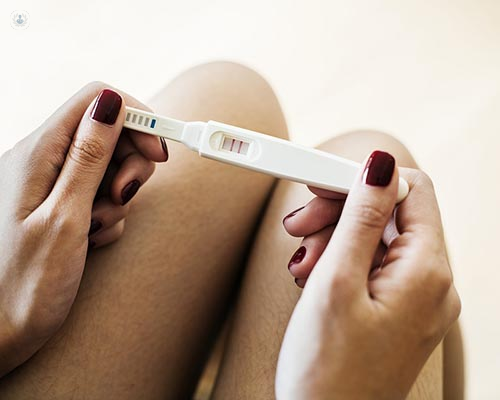Why can’t we conceive?
Autore:In the UK, one in seven couples experience difficulty conceiving, so you might wonder whether you are one of them, particularly if you are aged between 30 and 39. Whilst female fertility does decrease with age, there are many other physical, mental, and emotional well-being aspects that play a vital role in fertility and conception. Dr Malini Uppal, a fertility specialist of the City Fertility clinic in central London, lists some of the key things that can affect your fertility and your ability to conceive.

Stress and timing:
Timing is key in conception because women are most fertile during the days leading up to ovulation. Ovulation happens on roughly day 14 of the menstrual cycle, if the cycle is 28 days, however, this can vary between women. Hence, ovulation occurs about two weeks before the start of a period, but how can you track the ‘fertile window’ that happens just before ovulation? Luckily, there are several means of tracking this. Physical indicators of ovulation include an increase in the secretion of mucus from the cervix and increased body temperature. You can also use home ovulation prediction kits which test a woman’s urine.
So, how does stress relate to timing ovulation and that all-important ‘fertile window’? Many couples assume that they must time their intercourse to coincide with this window, which can lead to stress, particularly if they have busy schedules or are working. In reality, sperm can survive for a few days in the female genital tract, so conception can still occur if intercourse is had in the days leading up to ovulation. Therefore, the best advice for couples is to have intercourse frequently (every two to three days).
Psychosexual difficulties:
Psychosexual difficulties can result in subfertility, and subfertility in couples trying to conceive can negatively affect a couples’ sex life. Hence, if difficulty conceiving can be linked to a couple’s sexual relationship, relationship counselling or support can prove very helpful. On the other hand, it is more common for the stress caused by undergoing various fertility treatments to actually lead to a break down in relationships or sexual dysfunction.
Diet and deficiencies:
Eating healthily is always important, but there are some aspects of nutrition directly linked to fertility. For example, diets high in whole grains, fish, unsaturated fats and antioxidants (vitamins C and E, selenium and beta carotene) are linked with better fertility for both men and women. There is also evidence that shows diets high in saturated fats and sugar are associated with poorer fertility outcomes. Also important for improving fertility is having enough vitamin D, either from diet (found in oily fish and fortified breakfast cereals) or with limited exposure to sunlight. Often, in the winter months, a vitamin D supplement may be needed. Lastly, it is recommended for women trying to conceive to take a folic acid supplement three months before conceiving and for the first twelve weeks of pregnancy. This drastically reduces the chance of neural tube defects happening, such as spina bifida.
Read: Can red wine improve fertility?
Being overweight:
The risk of infertility is much higher in men and women with a body mass index (BMI) of more than 30. If your BMI is higher than 29, it is likely that it will take a lot longer to conceive because body fat secretes excess oestrogen, causing hormonal imbalances that disrupt ovulation. If you are overweight, losing just 5-10% of your body weight can restore ovulation and improve your chances of conceiving without fertility drugs. Men who are overweight often have a lower sperm count because their testosterone is converted by fat cells into oestrogen.
Being underweight:
Likewise, the risk of infertility in women with a BMI of less than 20 increases. Being underweight will make conception more difficult because about 50% of women with a BMI of 19 or less suffer from irregular periods, and hence irregular ovulation.
Smoking:
Smoking will have the following negative effects on fertility:
- Reduced egg quality
- Brings forward menopause
- Damages the ovaries
- Reduces sperm quality and quantity
Hence, if you are trying to conceive, there are lots of things to think about in terms of increasing your chances. Additionally, if you are struggling, there are also lots of factors to consider. Working with the team at City Fertility Ltd., your fertility issues can be identified, supported and hopefully resolved.



